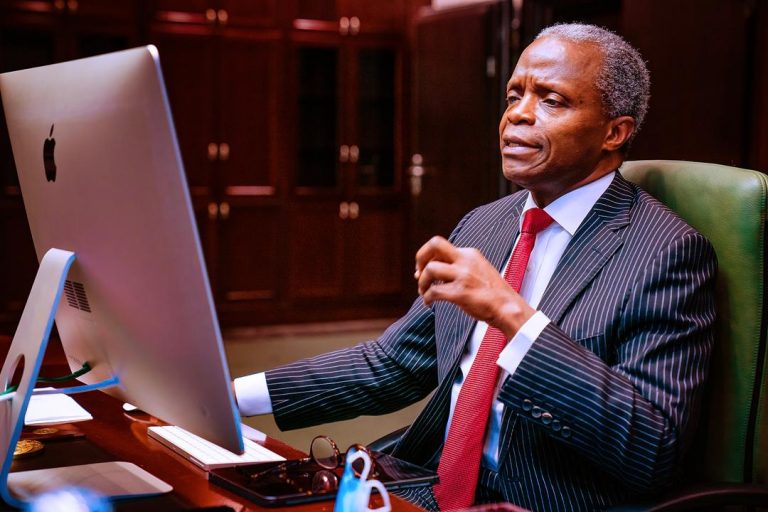Business
Nigerian Economic Summit Should Focus On Pressing Issues – Osinbajo
Ahead of next week’s Nigerian Economic Summit, an annual event where the public and private sector stakeholders deliberate on developmental issues

Ahead of next week’s Nigerian Economic Summit, an annual event where the public and private sector stakeholders deliberate on developmental issues, Vice President Yemi Osinbajo, SAN, says, focusing on few pressing national issues should be the objective of the meeting this year.
“Sometimes we talk about a lot of important things, but there are pressing, immediate things with significance for the future,” Prof Osinbajo told a delegation of the Nigerian Economic Summit Group (NESG) who met with him today at the Presidential Villa.
The NESG team briefed the VP on the agenda, particularly the theme of the 28th Nigerian Economic Summit (NES), ‘2023 and Beyond: Priorities for Shared Prosperity’, scheduled for the 14th and 15th of November, 2022.
The VP said “I am always concerned we don’t allow very many issues to obscure the more important issues that confront us today so that we leave the Summit with a clearer view on how we can resolve the pressing issues.”
Continuing, the Vice President said “for example, how do we tackle the rising inflation and the exchange rate instability? I really think we should spend more time focusing on the primary issues of inflation and exchange rate control.”
Stating the significance of the private sector’s perspective to macroeconomic issues, the VP said “it is very important to always note what you (private sector experts) think are the main concerns today especially about macroeconomics and how to deal with the issues. What the private sector thinks about how we can resolve some of these issues is important.”
Acknowledging the contributions of the NESG to economic development over the years, the VP said “I strongly believe in the objectives of the NESG, it has contributed a lot to how the public sector thinks through policies and has provided that forum for public sector accountability.”
“The NESG has also been very useful in educating the private sector about the processes of running a complex system such as the one that we have. It has been a very useful synergy between the public and the private sector,” the VP added.
In his remarks, Chairman of the NESG Board, Mr Asue Ighodalo, who led the delegation, commended the Vice President’s coordination that produced great results in the ease of doing business, noting that “you have done a fantastic job on ease of doing business, regardless of the challenges that we are confronted with today.”
He reiterated the commitment of the group to collaborate more with the public sector and expressed optimism that despite the challenges, “this government can still do much more before it leaves. At the NESG, we believe that the next six months are very critical.”
The 28th NES will feature President Muhammadu Buhari, the VP and other leaders from the public and private sectors, sharing thoughts on visionary leadership and inclusive growth, among other topics.
Other members of the NESG delegation included its CEO, Mr Laoye Jaiyeola; Member, NESG Board, Mr Nnanna Ude; Co-Chair (Public Sector) – 28th NES Joint Planning Committee, Mr Felix Okonkwo, and Co-Chair (Private Sector), 28th NES Joint Planning Committee, Mrs. Ijeoma Taylaur, among others.


